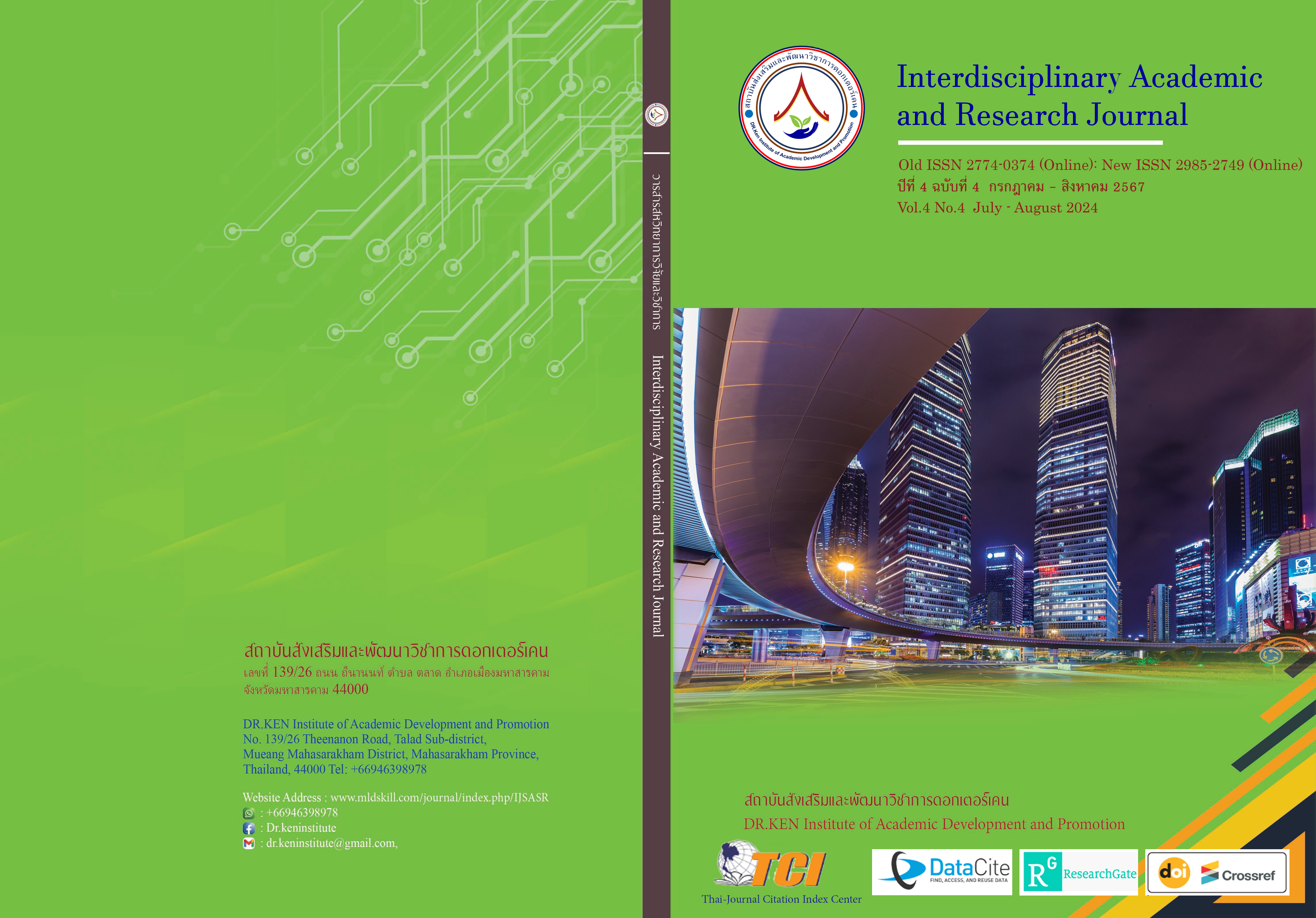People’s Rights and Liberty Protection, Case Study: Facts Gathering in Criminal Inquiry Stage
DOI:
https://doi.org/10.60027/iarj.2024.276588Keywords:
Right; , Liberty; , Criminal InquiryAbstract
Background and Aims: The rights and freedoms of individuals are protected by the Constitution following the principles of constitutionalism, the rule of law, the rule of law, and the principle of human dignity, and the principle of equality. The accused is a person who is protected in the same way as the general public to maintain various rights and freedoms as stated in the Constitution. Thus, this paper aims to (1) study concepts and theories pertinent to people’s rights and liberty protection in the case of facts gathering in the criminal inquiry stage; (2) study legal measures pertinent to people’s rights and liberty protection in the case of facts gathering in criminal inquiry stage in Thailand, Japan, Federal Republic of Germany, French Republic, and United Nations’ Standards; (3) analyze the problem condition in people’s right and liberty protection in the case of facts gathering in criminal inquiry stage; and (4) recommend guidelines for solving the problems of people’s right and liberty protection in the case of facts gathering in criminal inquiry stage to be efficient.
Methodology: This paper is qualitative research via documentary research by the study of books, textbooks, papers, legal provisions, articles, research reports, theses, independent studies, academic articles, and data from the internet, both in Thai and foreign languages.
Results: (1) concepts in people’s right and liberty protection in the case of facts gathering in criminal inquiry stage are in accordance with the concepts in examination principles to acquire the truths, whereby the relevant theories are people’s right and liberty protection principle, legal state, rule of law, equality principle, proportionality principle, and state’s mission principle; (2) legal measures pertinent to people’s right and liberty protection in the case of facts gathering in criminal inquiry stage of Thailand appear in the Constitution of Kingdom of Thailand and the Criminal Procedure Code; furthermore, the measures in Japan, Federal Republic of Germany, and French Republic appear in the Criminal Procedure Code of such countries, and for United Nations’ Standards, they appear in Universal Declaration of Human Rights; (3) In legal systems of Japan, Federal Republic of Germany, French Republic, and United Nations’ Standards, the right and liberty of those who enter to the process of criminal inquiry stage are strictly protected; nonetheless, in facts gathering in criminal inquiry stage of Thailand via online media, the peoples’ right and liberty may be infringed and violated as protected by the Constitution and laws; (4) Section 135 of the Criminal Procedure Code ought to be amended, based upon the mechanism of the Act on Legislative Drafting and Evaluation of Law B.E. 2562 (A.D. 2019) so as to solve such problems to be further efficient.
Conclusion: The safeguarding of rights and freedoms in criminal investigations is consistent with universal principles that are embedded in a number of international legal frameworks; however, disparities occur in Thailand, especially with regard to investigations involving online media, underscoring the necessity of legislative changes to improve effectiveness and preserve constitutional rights.
References
คณิต ณ นคร. (2564). กฎหมายวิธีพิจารณาความอาญา เล่ม 1. (พิมพ์ครั้งที่ 10 แก้ไขเพิ่มเติม ). กรุงเทพฯ: สำนักพิมพ์วิญญูชน.
ธานี วรภัทร์. (2564). หลักนิติธรรม เอกสารการสอนชุดวิชาองค์ความรู้ด้านกระบวนการยุติธรรม หลักสิทธิมนุษยชนและหลักธรรมาภิบาล. (พิมพ์ครั้งที่ 1). นนทบุรี: มหาวิทยาลัยสุโขทัยธรรมาธิราช.
Bartl, M., Dorofeeva, K., & Quattrocolo, S. (2019). International cooperation in the fight against cybercrime: Legal instruments and frameworks. Cham, Switzerland: Springer.
Cammack, N. (2018). Human rights in Thailand: Beyond the tipping point? Journal of Contemporary Asia, 48(2), 277-295.
Cavallaro, J., & Donnelly, J. (2014). The rights of detainees under international law. Human Rights Quarterly, 36(4), 809-841.
Gobbo, A., & Spiranovic, C. (2018). Responding to miscarriages of justice: The need for a review mechanism in Thailand. International Journal of Law, Crime and Justice, 54, 36-48.
Goodwin-Gill, G. S., & Lambert, H. (2016). The right to humane treatment of persons deprived of liberty. In Research Handbook on International Human Rights Law (pp. 330-348). Edward Elgar Publishing.
Johnson, D. T. (2017). The right to remain silent: Miranda v. Arizona and the revolutionary rise of the American criminal justice system. Oxford University Press.
Kaplan, J. M., Garrity, L. E., & Seward, J. (2020). The right to counsel: Understanding the landscape of indigent defense. Journal of Criminal Law and Criminology, 110(4), 601-664.
Lustgarten, L. (2019). Comparative criminal procedure: History, processes, and case studies. Durham, NC: Carolina Academic Press.
Raiter, A. (2018). The presumption of innocence in international human rights law and international criminal law. European Journal of International Law, 29(1), 53-82.
Downloads
Published
How to Cite
Issue
Section
License
Copyright (c) 2024 Interdisciplinary Academic and Research Journal

This work is licensed under a Creative Commons Attribution-NonCommercial-NoDerivatives 4.0 International License.
Copyright on any article in the Interdisciplinary Academic and Research Journal is retained by the author(s) under the under the Creative Commons Attribution-NonCommercial-NoDerivatives 4.0 International License. Permission to use text, content, images, etc. of publication. Any user to read, download, copy, distribute, print, search, or link to the full texts of articles, crawl them for indexing, pass them as data to software, or use them for any other lawful purpose. But do not use it for commercial use or with the intent to benefit any business.
















.png)


